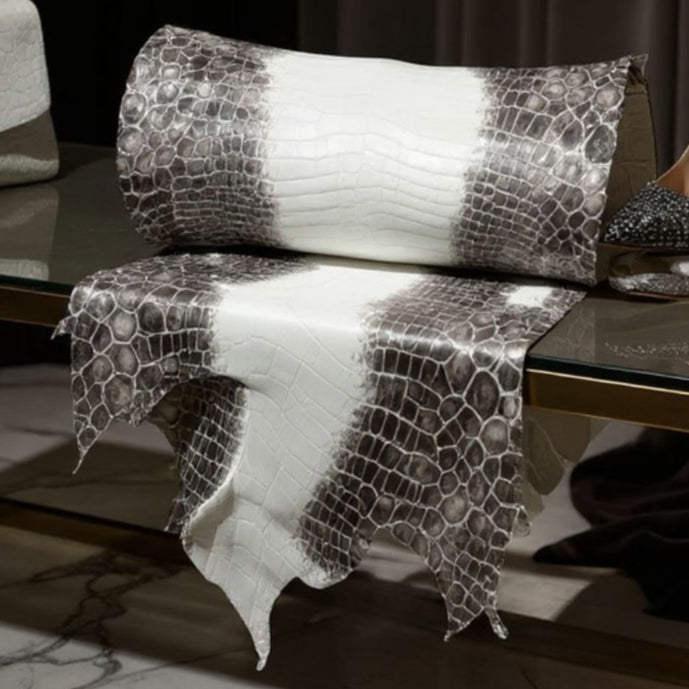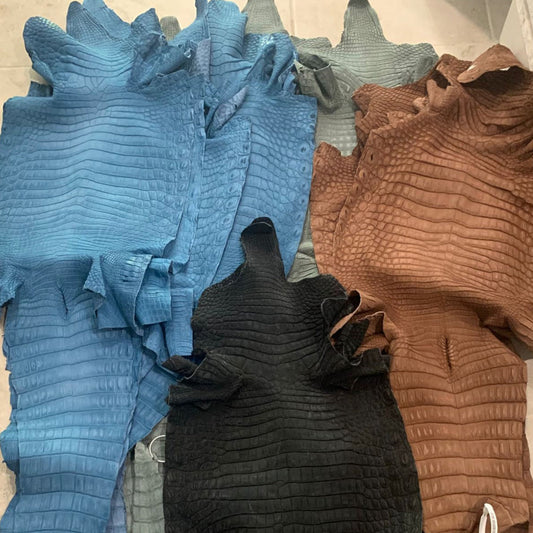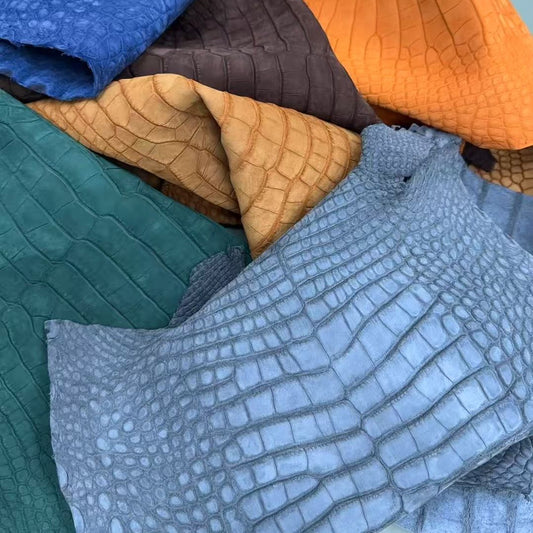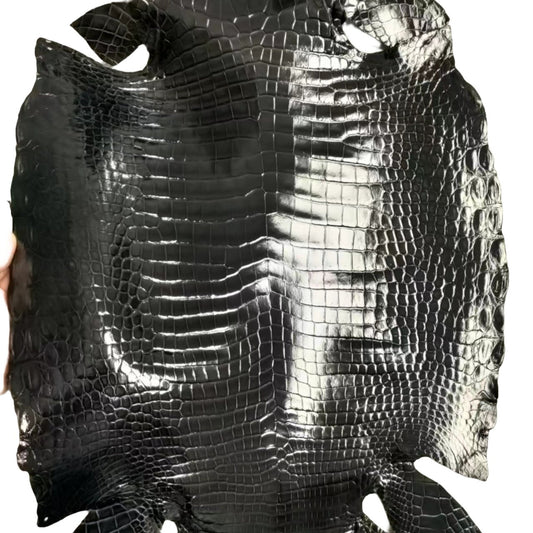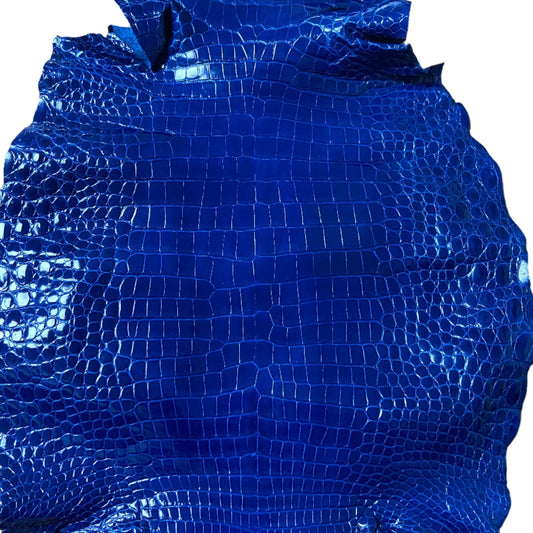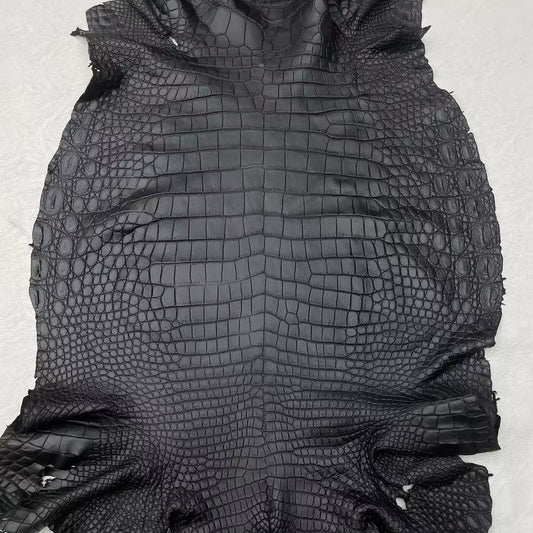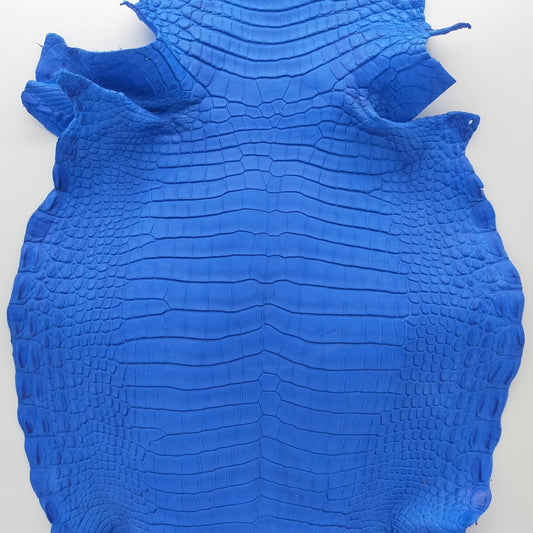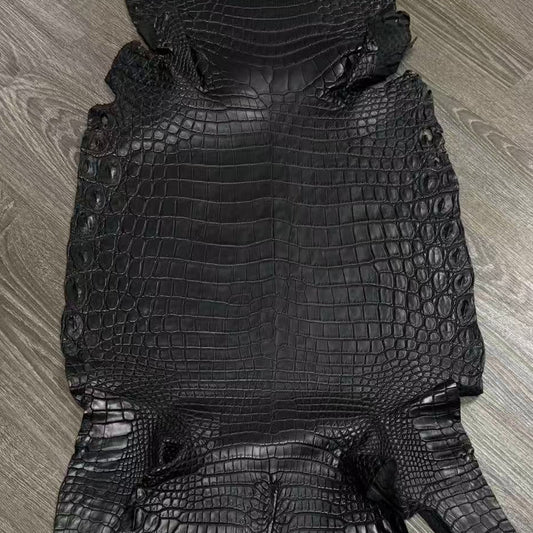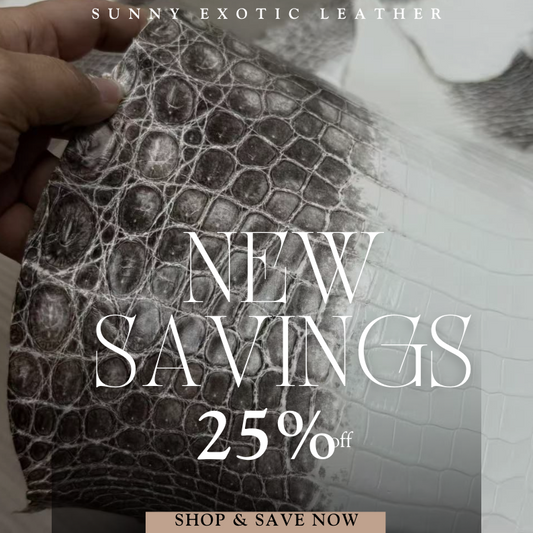
Lizard Skins - The Exotic Leather for Fashionable Luxury Shoes
Share
The process of creating high-fashion men's shoes can be a challenging task for any shoemaker. The goal is to produce a product of the highest quality, using the finest materials, while at the same time keeping the costs under control. This can be a tricky balancing act, as the best materials, such as alligator skin, can be extremely expensive.
The search for a top-quality exotic skin that is also budget-friendly can be a tough one. There are some types of skin that are perfect for creating men's shoes, but the cost of obtaining them can be prohibitive. On the other hand, there are less expensive skins that may not be the best fit for men's shoes due to their size or other characteristics.
So, what's the best option for a low-cost exotic skin to use in men's shoes? The answer is lizard skin.
Lizard skin is among the top exotic leathers for making men's shoes and it is also one of the most affordable options available on the market. When it comes to lizard skin, there are a few different types that fall under this category, but at Sunny Exotic Leather this term typically refers to ring lizard skin and teju lizard skin.
Both types of lizard produce a similar skin. The skin has small, regular scales, can be between 20 - 55 cm in length, and up to 45 cm wide. This size is nearly perfect for making men's shoes. Additionally, the small, regular scales create a neat, consistent, conservative look in men's shoes, making it easier for shoemakers to pair the skins for their shoes compared to larger, more distinctive scales found in crocodile or alligator skins.
Lizard skin is also known for being more flexible than caiman skin, making it easier to work with and allowing the finished shoe to bend without creasing or cracking. This is an important factor to consider, as the last thing any shoemaker wants is for their shoes to crack or crease after a short period of time.
When ordering lizard skin, it is important to remember that, like most other reptilian hides, it should be ordered in pairs. Typically, two 30+ cm-wide skins are needed for each pair of shoes. Unlike crocodile or alligator skin, grade is rarely an issue for lizard skin, so there's no need to specify a grade.
If a specific color and finish are desired, it may be best to place an order with a tannery and make sure that all of the skins are in the same dye batch. This will ensure a consistent appearance. However, it is important to keep in mind that a custom tannery order will have basic setup costs, regardless of the number of skins being ordered. To minimize the cost per skin, it may be worth placing a larger order. However, this process can take several weeks, so if time is of the essence, it may be better to check the stock of over 50 different lizard colors available.
In conclusion, for many shoemakers, lizard skin can be the ideal choice for their exotic leather men's shoes. With its affordability, flexibility, and consistency, it is a versatile and practical option for any shoemaker looking to create high-quality, fashionable men's shoes.
